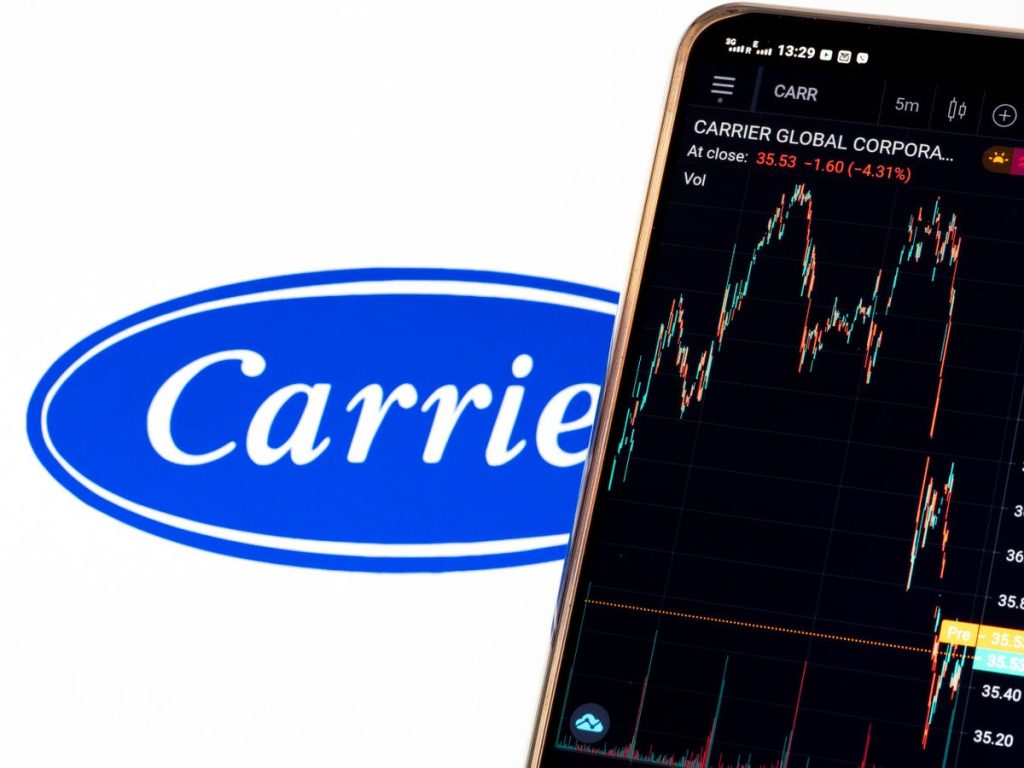Deal Overview
On April 11, 2023, Carrier Global
CARR
Corp. (NYSE: CARR, $44.30, Market Capitalization: $37.0 billion), a leading global provider of healthy, safe, sustainable, and intelligent building and cold chain solutions, announced that it is exploring strategic alternatives for its Fire & Safety business unit. According to the article by Wall Street Journal, the Company is working on a plan to sell or spin-off its Fire & Security business segment. As of now, it has been reported that the process is in an early stage, and there is no guarantee the Company will follow through. Carrier will continue to carefully manage the cost structure of each business in preparation for potential separation and will announce additional details regarding the separation at a later date. Carrier Global jumped 6.3% on April 11, the biggest intraday advance since Nov. 10 on the Wall Street Journal news On 4/10, the Company announced that it will release its 1Q23 earnings on Thursday, April 27, and host a conference call and webcast at 7:30 a.m. ET.
Deal Rationale
Carrier was formed after United Technologies
UTX
Corp. separated itself into three independent companies in 2020. In just 2.5 years, Carrier reduced its net debt levels nearly in half from $10 billion to $5.2 billion while increasing its strategic organic growth investments by over $300 million. The Company has also completed several compelling acquisitions, highlighted by the acquisition of Toshiba Carrier in February 2022. Carrier’s acquisitions have been strategic and core to the Company’s business, focused on enhancing sustainability leadership, accelerating aftermarket growth, driving digital and technology differentiation, and expanding adjacencies and geographic coverage. It should be noted that large US HVAC suppliers have streamlined portfolios, raised product investments and made small technology deals to capitalize on sustainable above-industrial-sector growth driven by secular trends, including energy efficiency and healthy buildings, thus capitalizing on secular tailwinds.
The Fire and Safety business, which accounts for ~17% of sales, is less profitable, with lower organic growth than the larger HVAC unit. Demand for Carrier’s Fire & Security products, used across residential, commercial and industrial properties, was mixed in the most recent quarter and buffeted by slower new construction in some markets. This has resulted in calls from some investors and analysts for the Company to consider separating the Fire and Safety Security division, which is considered to be a drag on its valuation. According to analysts, a spin-off or sale could bring the Company’s valuation closer to the pure-play Trane Technologies, which has traded at ~20% premium over the last four years. Carrier’s Fire & Security unit could fetch as much as $7.5 billion in a sale. However, a spin-off of the asset with moderate leverage could be a more prudent outcome considering market conditions. A potential sale would leave the Company with ample firepower to buy back stock or for acquisitions while staying within its risk goal of about 2x net leverage, limiting the impact on its bonds. A sale could free up capital to pursue favorable HVAC opportunities amid climate concerns and the IRA Act. Carrier will continue evaluating acquisitions and other strategic options in the current portfolio for potential opportunities for simplification and value creation.
Company Description
Carrier Global Corporation (Parent)
Carrier Global Corporation is the leading global provider of healthy, safe, sustainable, and intelligent building and cold chain solutions, focusing on providing our customers with differentiated, digitally enabled lifecycle solutions. The Company’s portfolio includes industry-leading brands such as Carrier, Toshiba, Automated Logic, Carrier Transicold, Kidde, Edwards, and LenelS2 that offer innovative HVAC, refrigeration, fire, security, and building automation technologies to help make the world safer and more comfortable. Carrier also provides related building services, including audit, design, installation, system integration, repair, maintenance, and monitoring. The Company’s operations are classified into three segments: HVAC, Refrigeration, and Fire & Security. For FY22, the Company recorded revenues of $20.4 billion.
On February 6, 2022, Carrier Global entered into a binding agreement to acquire a majority ownership interest in Toshiba Carrier Corporation (TCC), a variable refrigerant flow and light commercial HVAC joint venture between Carrier and Toshiba Corporation. TCC designs and manufactures flexible, energy efficient and high-performance VRF and light commercial HVAC systems as well as commercial products, compressors and heat pumps. The acquisition included all of TCC’s advanced research and development centers and global manufacturing operations, product pipeline and the long-term use of Toshiba’s iconic brand. The acquisition was completed on August 1, 2022 and reported within the HVAC segment. Upon closing, Toshiba Corporation retained a 5% ownership interest in TCC.
Fire & Security Segment (Spin-Off)
The Fire & Security segment provides many residential, commercial, and industrial technologies designed to help protect people and property. Its established brands include Kidde, Edwards, GST, LenelS2, Marioff, Autronica, Aritech, Det-Tronics, Onity, Supra, and Fireye, which provide product and technology innovations that are supported by installation, maintenance, and monitoring through a network of channel partners and its own field service business, along with web-based and mobile applications and cloud-based services. Products include fire, flame, gas, smoke, carbon monoxide detection, portable fire extinguishers, fire suppression systems, intruder alarms, access control systems, video management systems, and electronic controls. Other fire and security service offerings include audit, design, installation, system integration, aftermarket maintenance, repair, and monitoring services. Carrier’s fire and security products and solutions, also part of Carrier’s Healthy Homes and Healthy Buildings Programs, are sold directly to end customers and through manufacturers’ representatives, distributors, dealers, value-added resellers, and retail distribution. For FY22, the segment recorded net sales of $3.6 billion.
Read the full article here




